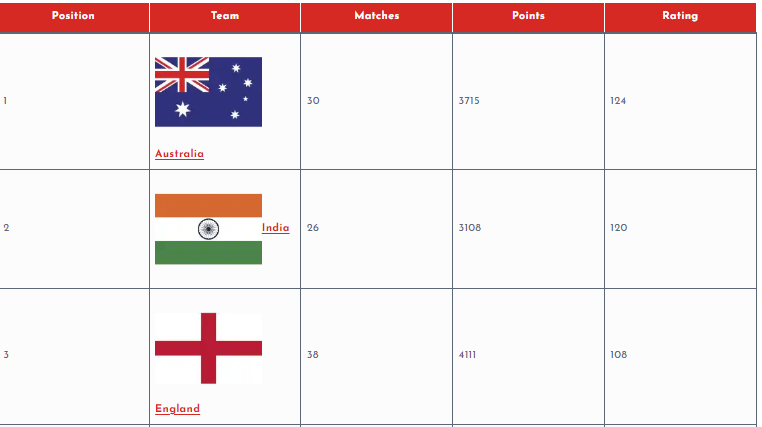
Top 5 best Tips to lose weight Naturally
Losing weight can be a difficult journey, but with the right strategy, it is achievable. If you’re looking to “lose weight”, it’s important to approach the process with a balanced mindset, focusing on sustainable and healthy habits. Below are the top five best tips to help you on your weight loss journey. These tips are based on science and can be adapted to your lifestyle and benificial beginner. Let’s look at each one in detail.
1. Balanced and Mindful Eating to Lose Weight
Your diet plays an important role when trying to “lose weight”. It’s not just about cutting calories but making sure you consume the right nutrients to fuel your body. Here’s how you can approach food in a way that supports weight loss:
- calorie control.: One of the easiest ways to manage calorie intake is to control portion sizes. Overeating, even healthy foods, can lead to weight gain. Use smaller plates and bowls to trick your brain into feeling satisfied by eating less. Pay attention to your body’s hunger and fullness signals, and try to stop eating when you’re comfortably full, not full.
- Nutrient-rich foods: Focus on foods that are high in nutrients but relatively low in calories. These include fruits, vegetables, whole grains, lean protein and healthy fats. Nutrient-rich foods provide the vitamins and minerals your body needs to function properly, helping you “lose weight.” For example, leafy greens like spinach and kale are low in calories but full of fiber, which helps fill you up.
- Mindful eating: Mindful eating means paying full attention to the experience of eating, both inside and outside the body. It helps you enjoy your food more and prevents you from overeating. Sit down at the table to eat, chew your food slowly, and savor every bite. Avoid distractions like watching TV or scrolling through your phone while eating. This exercise helps you recognize when you’re really hungry and when you’ve had enough.
- Meal planning and preparation: Planning your meals ahead of time can prevent unhealthy, last-minute food choices. Consider preparing meals for the week, making sure they are balanced and portion controlled. This strategy can save you time and reduce the temptation to eat out or grab quick, unhealthy snacks.
2.For Lose Weight Regular Physical Activity
Exercise is a cornerstone in the quest to “lose weight.” It helps burn calories, build muscle, and improve overall health. Here are some tips for incorporating regular physical activity into your routine:
- Find an activity you enjoy: The best exercise is the one you stick with. Whether it’s walking, running, cycling, swimming or dancing, find something you enjoy. This makes it easy to incorporate exercise into your daily routine. If you dislike traditional exercise, consider activities like hiking, playing sports, or gardening, which can also help you burn calories.
- Strength training: While cardio is great for burning calories, strength training is important for building muscle, which can increase your metabolism. The more muscle you have, the more calories your body burns at rest. Add strength training exercises, such as lifting weights or bodyweight exercises such as push-ups and squats, at least two to three times a week.
- Consistency over Intensity: When trying to “lose weight“, it’s best to focus only on high-intensity exercise in your exercise routine. Even moderate exercise, such as brisk walking or light jogging, can be very effective when done regularly. Aim for at least 150 minutes of moderate-intensity aerobic activity or 75 minutes of vigorous-intensity activity each week, along with muscle-strengthening activities.
- Include movement throughout the day: Don’t limit physical activity to just your workout time. Find opportunities to move throughout the day. Take the stairs instead of the elevator, park farther from the entrance, or take short walking breaks during your work day. These small changes can increase your overall calorie burn.

3. Stay Hydrated to lose Weight
Drinking plenty of water is a simple but often overlooked strategy to “lose weight.” Hydration plays an important role in weight loss and overall health. Here’s how staying hydrated can help you reach your weight loss goals:
- Water as an Appetite Suppressant: Sometimes, our bodies confuse thirst with hunger. Drinking water before a meal can help reduce hunger, leading to fewer calories. A study showed that people who drank water before meals lost more weight than those who did not. Keep a water bottle with you throughout the day and sip regularly
- Boost metabolism: Drinking water can temporarily boost your metabolism. A study has shown that drinking 500 ml of water increases metabolism by 30% for about 30-40 minutes. Although the increase is short-lived, drinking water consistently throughout the day can help you burn more calories.
- Avoid sugary drinks: Sugary drinks, including soda and fruit juice, are high in calories and can lead to weight gain. Replacing these drinks with water can significantly reduce your calorie intake. If you find plain water boring, try mixing it with fruit, herbs or a splash of lemon for flavor without the calories.
- Exercise Support: Staying hydrated is essential for optimal physical performance. Dehydration can lead to fatigue, making it difficult to stay active. Drink water before, during and after your workout to stay hydrated and maintain your energy levels
4. For lose Weight To Get Enough Sleep
Sleep is often an underrated factor in the “lose weight” effort. Lack of sleep can disrupt your hormones, increase appetite, and make it harder to lose weight. Why getting enough sleep is important for weight loss:
- Hormonal balance: Lack of sleep affects the balance of the hormones ghrelin and leptin, which control appetite and hunger. Ghrelin signals your brain that it’s time to eat, while leptin tells you when you’re full. When you don’t get enough sleep, ghrelin levels increase, and leptin levels decrease, leading to increased appetite and overeating.
- Decreased cravings: Lack of sleep can also increase cravings for unhealthy, high-calorie foods. That’s because lack of sleep can affect the part of your brain that controls decision-making and impulse, making it harder to resist junk food.
- Energy and motivation: Getting enough sleep helps you have more energy and motivation to be active. When you’re well-rested, you’re more likely to stick to your exercise routine and make healthy food choices
- Set a sleep schedule: Aim for 7-9 hours of sleep per night. Create a regular sleep schedule and wake up at the same time every day, even on weekends. Create a relaxing bedtime routine, such as reading or taking a warm bath, to help you relax and prepare for sleep.

5. Manage Stress To Weight
Stress can be a major obstacle when trying to “lose weight.” Chronic stress triggers the release of cortisol, a hormone that can lead to weight gain, especially around the abdomen. Managing stress effectively is critical to successful weight loss. Here is the method:
- Identify Stress: The first step to managing stress is to identify the sources of stress in your life. Whether it’s work-related stress, relationship issues, or financial concerns, knowing what’s triggering your stress is essential to effectively addressing it.
- Practice relaxation techniques: Incorporate relaxation techniques into your daily routine to help manage stress. Techniques like deep breathing, meditation, yoga, or progressive muscle relaxation can help calm your mind and reduce the effects of stress. Even spending time in nature or practicing mindfulness can significantly reduce stress levels.
- Be active: Regular physical activity is a natural stress reliever. Exercise releases endorphins, which are natural mood enhancers. It can also distract you from the stresses of everyday life, give you a mental break and help you “lose weight” at the same time.
- Healthy coping mechanisms: Instead of turning to food for comfort in times of stress, find healthy ways to cope. This may include talking to a friend, engaging in a hobby, or spending time with loved ones. Emotional eating can sabotage your weight loss efforts, so it’s important to develop strategies to deal with stress without resorting to food.
Conclusion aboust Lose Weight
The “lose weight” journey is multifaceted, including diet, exercise, hydration, sleep and stress management. By adopting these five tips, you can create a balanced and sustainable approach to weight loss. Remember, consistency is key, and it’s important to be patient with yourself as you work toward your goals. Weight loss is not a one-size-fits-all process, so feel free to tailor these tips to fit your lifestyle and preferences. With dedication and the right strategy, you’ll be well on your way to achieving your weight loss goals and improving your overall health.





























































































